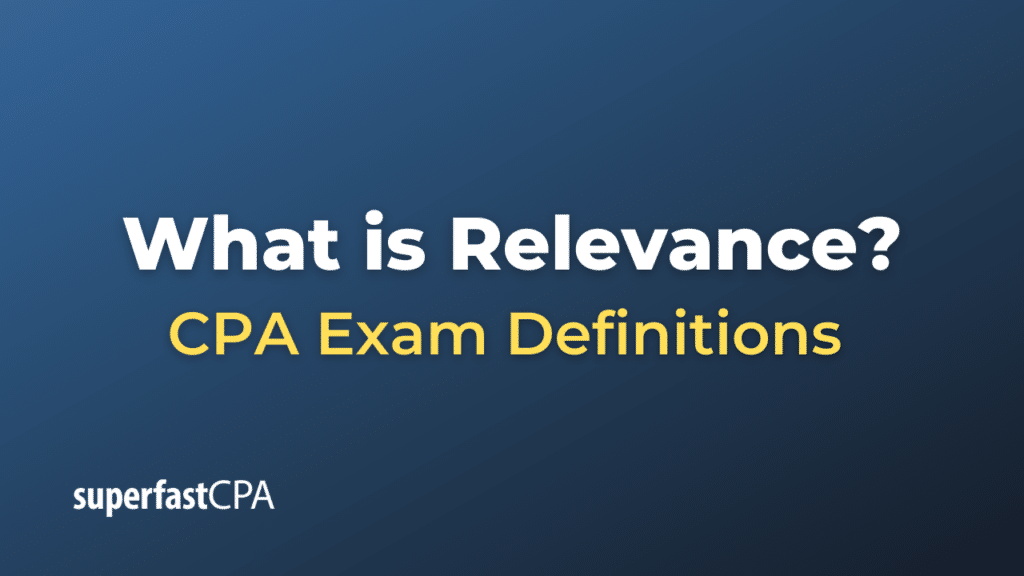Relevance
In various contexts, “relevance” can refer to the pertinence, appropriateness, or significance of something in relation to a particular matter or context. However, since you didn’t specify, I’ll start by explaining “relevance” in the context of financial accounting and then provide a general definition.
- Relevance in Financial Accounting: Relevance is one of the primary qualitative characteristics of financial information as defined by the conceptual framework of accounting. For financial information to be relevant, it should be capable of making a difference in the decisions made by users. Relevant information can either have predictive value (i.e., it helps users forecast future outcomes) or confirmatory value (i.e., it helps users confirm or correct their past evaluations).For example, a company’s recent sales growth rate is relevant to investors because it can help them predict future earnings and also confirm whether their past predictions about the company’s performance were accurate.
- General Definition: In a broader context, relevance refers to the applicability, connection, or importance of one thing to another. If something is deemed relevant, it means that it is closely connected or appropriate to the matter at hand. For instance, in a discussion about climate change, facts about global temperature rises are relevant, while one’s favorite color might not be.
Relevance is a subjective measure, and what may be relevant in one context or to one individual might not be to another. Whether in accounting, research, or daily life, determining relevance is crucial in sifting through information and making informed decisions or judgments.
Example of Relevance
Let’s explore the concept of relevance with examples from both an accounting context and a general life situation:
- Relevance in Financial Accounting:Scenario: Imagine you’re an investor deciding whether to invest in Company A or Company B.
- Company A: Recently released its quarterly earnings report showing a 20% increase in profits from the previous quarter.
- Company B: Recently made headlines because its CEO completed a marathon.
- Relevance in a General Life Situation:Scenario: You’re participating in a debate about the effects of diet on health.
- Argument A: A recent study found that people who consume a high amount of processed foods have a greater risk of developing heart diseases.
- Argument B: Blue is the most popular favorite color among people aged 20-30.
Both examples highlight the importance of context when determining relevance. Information must be directly related to the matter at hand to be considered relevant.













